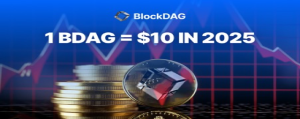“FX Cartel” traders seek to dismiss US Indictment
The defendants argue that US Courts lack considerable experience with the practices intrinsic to FX trading that is necessary to allege any unlawful conduct in the case against Christopher Ashton, Rohan Ramchandani, and Richard Usher.

Former Forex traders Christopher Ashton, Rohan Ramchandani, and Richard Usher, who stand accused of Forex price manipulation, are seeking to dismiss the Indictment. The respective Motion to Dismiss was filed with the New York Southern District Court on Friday, November 17, 2017.
The defendants in the case, captioned USA v. Usher et al (1:17-cr-00019), are citizens and residents of the United Kingdom. They were currency traders for banks in London with customers in Europe.
Christopher Ashton was a EUR/USD trader for the UK affiliate of Barclays PLC from 2011 to 2015. Rohan Ramchandani was a EUR/USD trader for the UK affiliate of Citicorp. from 2004 to 2014. Richard Usher was a EUR/USD trader for the UK affiliate of The Royal Bank of Scotland PLC from 2004 to 2010, and for the UK affiliate of JPMorgan Chase & Co. from 2010 to 2013.
The Indictment alleges that the defendants used a chat room to discuss customer trades and risk positions. According to the Indictment, they agreed in these discussions that they would “suppress and eliminate competition” in the global FX market through coordinating their bidding, offering, and trading.
The defendants waived extradition to come to the United States and fight the charges. On Friday, they moved to dismiss the Indictment on a number of grounds, with the move in line with their “not guilty” pleas.
- There was no per se violation of the Sherman Act
The specific categories of practices that courts have deemed per se unlawful are limited to naked horizontal agreements to fix prices, rig bids, or allocate customers.
“Horizontal restraints” are imposed by agreements among competitors on the same side of a market transaction—e.g., between competing sellers. “Vertical restraints” are agreements between firms on different sides of a market transaction—e.g., between buyers and sellers.
Ashton, Ramchandani, and Usher were not always buyers, or always sellers, in the FX spot market, the defense lawyer argues. Rather, they were regularly potential counterparties of one another, standing in vertical relationships—on different sides of the market—and continually making euro-dollar sales with each other, just as they did with other market participants. Restraints of trade in such vertical relationships are not per se Sherman Act offenses.
- The US Courts’ (lack of) experience
A restraint of trade may be deemed per se unlawful “only after courts have had considerable experience with the type of restraint at issue.” The Indictment challenges an alleged restraint that no criminal antitrust case has ever scrutinized.
The Indictment accuses the defendants of sharing information “in telephone calls and electronic messages, including . . . near-daily conversations in a private electronic chat room.” These information-exchanges concerned supply and demand in the market, including “customer orders and trades; customer names; and risk positions.” And the Indictment alleges that the trio “coordinated their bidding, offering, and trading” in the FX market.
However, according to the defense, a constant stream of communication among traders, accompanying and arranging frequent transactions among them, are the very tasks that allow FX traders to provide their services most efficiently. The Court is therefore urged to reject the Indictment’s per se attack on a “way of doing business . . . in a new and previously unexamined context.” Moreover, US Courts are dubbed to lack the “considerable experience” with the practices intrinsic to FX trading that is necessary to support a conclusion that the conduct alleged in this case is per se unlawful.
- Procompetitive information sharing
The motion filed by the defendants notes that information sharing is not necessarily anticompetitive.
In fact, they say, the discussions of market trends and orders are precisely the types of information that FX spot traders need in order to trade effectively. By exchanging this information, traders improve their access to the currency necessary to execute customer orders. The same types of information also enable traders to combat predatory market practices, such as the customer practice of misrepresenting the overall size of a customer’s order—and thus the bank’s risk.
The defendants argue that the Indictment’s allegations relate to procompetitive information sharing, rather than any “plainly anticompetitive” restraint.
- Scope of jurisdiction
The defendants note that the Indictment does not allege that they ever engaged in transactions in a US domestic market. Even the ECB and WMR “fixes,” which were allegedly manipulated by the trio, are “benchmarks” calculated abroad by foreign companies or banks.
Although the Indictment alleges that some of Defendants’ counterparties were “located . . . in the United States,” it does not allege that the transactions with those counterparties occurred in the United States. To the contrary, the only trading platform identified in the Indictment, EBS, is owned and operated by a company located in the United Kingdom.
- International comity
According to the defendants, the Court should abstain from exercising its jurisdiction on the grounds of international comity – the recognition which one nation allows within its territory to the legislative, executive or judicial acts of another nation.
The alleged conduct took place entirely in the United Kingdom, on a British trading platform, and the Indictment does not describe any specific effect in the United States, the defense notes. Also, the UK Serious Fraud Office, which is responsible for investigating and prosecuting complex economic crimes such as antitrust violations, conducted an 18-month investigation of the conduct described in the Indictment and declined to prosecute any of defendants for cartel or fraud offenses.
The trial is scheduled for June 4, 2018 but the defendants have asked for adjournment to the fall of 2018 as the volume of evidence in the case continues to grow.









